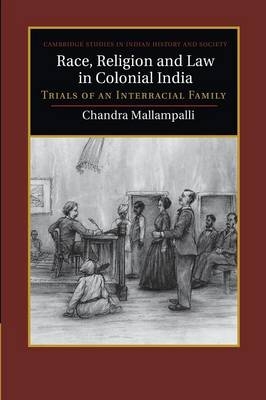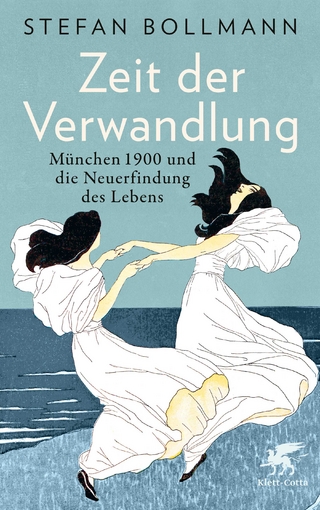
Race, Religion and Law in Colonial India
Trials of an Interracial Family
Seiten
2015
Cambridge University Press (Verlag)
978-1-107-48754-3 (ISBN)
Cambridge University Press (Verlag)
978-1-107-48754-3 (ISBN)
How did British rule in India transform persons from lower social classes? Could Indians from such classes rise in the world? This book explores such questions by examining the intriguing story of an interracial family who lived in southern India in the mid-nineteenth century.
How did British rule in India transform persons from lower social classes? Could Indians from such classes rise in the world by marrying Europeans and embracing their religion and customs? This book explores such questions by examining the intriguing story of an interracial family who lived in southern India in the mid-nineteenth century. The family, which consisted of two untouchable brothers, both of whom married Eurasian women, became wealthy as distillers in the local community. A family dispute resulted in a landmark court case, Abraham v. Abraham. Chandra Mallampalli uses this case to examine the lives of those involved, and shows that far from being products of a 'civilizing mission' who embraced the ways of Englishmen, the Abrahams were ultimately - when faced with the strictures of the colonial legal system - obliged to contend with hierarchy and racial difference.
How did British rule in India transform persons from lower social classes? Could Indians from such classes rise in the world by marrying Europeans and embracing their religion and customs? This book explores such questions by examining the intriguing story of an interracial family who lived in southern India in the mid-nineteenth century. The family, which consisted of two untouchable brothers, both of whom married Eurasian women, became wealthy as distillers in the local community. A family dispute resulted in a landmark court case, Abraham v. Abraham. Chandra Mallampalli uses this case to examine the lives of those involved, and shows that far from being products of a 'civilizing mission' who embraced the ways of Englishmen, the Abrahams were ultimately - when faced with the strictures of the colonial legal system - obliged to contend with hierarchy and racial difference.
Chandra Mallampalli is Associate Professor of History at Westmont College. His publications include Christians and Public Life in Colonial South India, 1863–1937 (2004).
Introduction; 1. Remembering family; 2. Embodying 'Dora-hood': the brothers and their business; 3. A crisis of trust: sedition and the sale of arms in Kurnool; 4. Letters from Cambridge; 5. The path to litigation; 6. Litigating gender and race: Charlotte sues at Bellary; 7. Francis appeals: the case for continuity; 8. Choice, identity, and law: the decision of London's Privy Council.
| Reihe/Serie | Cambridge Studies in Indian History and Society |
|---|---|
| Zusatzinfo | 3 Maps; 6 Halftones, unspecified |
| Verlagsort | Cambridge |
| Sprache | englisch |
| Maße | 154 x 229 mm |
| Gewicht | 430 g |
| Themenwelt | Geschichte ► Allgemeine Geschichte ► Neuzeit (bis 1918) |
| Geisteswissenschaften ► Geschichte ► Regional- / Ländergeschichte | |
| Geschichte ► Teilgebiete der Geschichte ► Militärgeschichte | |
| Geschichte ► Teilgebiete der Geschichte ► Wirtschaftsgeschichte | |
| Recht / Steuern ► EU / Internationales Recht | |
| Recht / Steuern ► Rechtsgeschichte | |
| Sozialwissenschaften ► Soziologie | |
| ISBN-10 | 1-107-48754-4 / 1107487544 |
| ISBN-13 | 978-1-107-48754-3 / 9781107487543 |
| Zustand | Neuware |
| Informationen gemäß Produktsicherheitsverordnung (GPSR) | |
| Haben Sie eine Frage zum Produkt? |
Mehr entdecken
aus dem Bereich
aus dem Bereich
München 1900 und die Neuerfindung des Lebens
Buch | Hardcover (2023)
Klett-Cotta (Verlag)
28,00 €
Giordano Bruno - ein ketzerisches Leben
Buch | Hardcover (2024)
C.H.Beck (Verlag)
29,90 €


